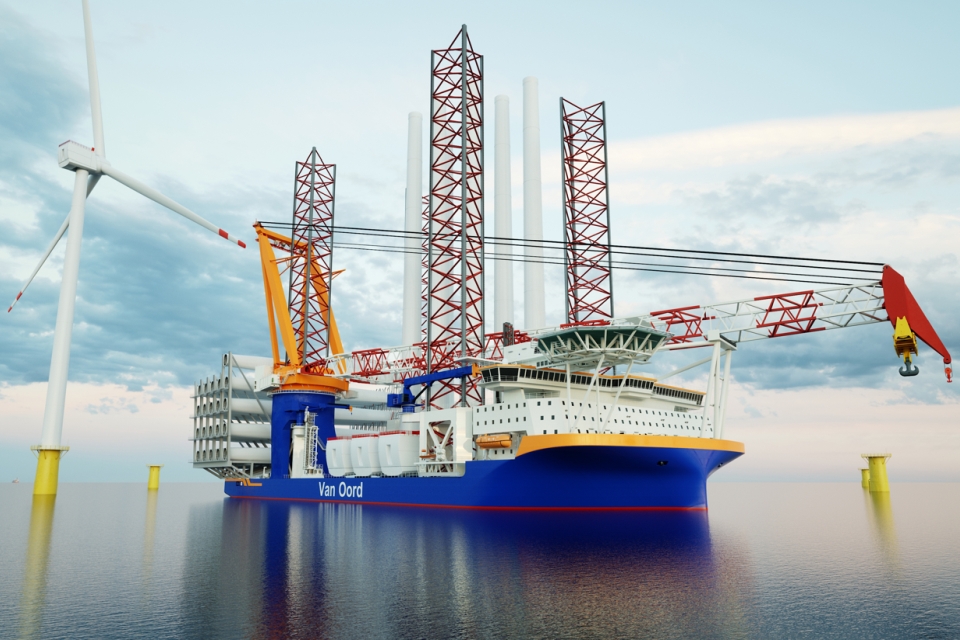Wärtsilä has received its first order for newbuild methanol-fuelled engines. A new offshore installation vessel being built for Dutch contracting company Van Oord at Yantai CIMC Raffles shipyard in China will be powered by five Wärtsilä 32 engines capable of operating on methanol.
Wärtsilä will also supply a package of thrusters to the Van Oord vessel for efficient station keeping. Delivery of the equipment, which includes the methanol fuel supply system, is scheduled for early 2023.
Also read: Van Oord orders methanol-powered mega ship to install 20-MW wind turbines
Green methanol
‘We see methanol as one of the alternatives to meet the industry’s goals to reduce its environmental impact,’ says Harold Linssen, Project Director, Van Oord. ‘We are pleased to be the pioneer of Wärtsilä’s latest methanol-fuelled engine technology.’
“Green” methanol is among the potential and most promising future fuel candidates. It is made using hydrogen from renewable-sourced electricity and recaptured carbon. The benefits of methanol are that it is relatively inexpensive to produce, is widely available, and easy to store. Furthermore, the global supply infrastructure is already established.
Modular engine solutions
In line with its strategy to meet future development needs through collaboration with key stakeholders, Wärtsilä recently signed a long-term strategic cooperation agreement with Chinese shipyard Yantai CIMC Raffles. The cooperation is aimed at the design and development of future-proof solutions for newbuild vessels. This will include the use of future carbon-free fuels and other integrated technology solutions.
‘Enabling the use of methanol fuel is an important step along the path towards decarbonised operations. These cooperations will speed the work in bringing these fuels to the market, and in building ships that meet and exceed the regulatory and operational requirements for the coming decades,’ states Roger Holm, President, Wärtsilä Marine Power.
During the coming few years, Wärtsilä will commercialise engine technologies that allow the use of all alternative fuels currently under discussion. Given the modularity of modern engines, this means that owners can already today future-proof their existing assets and plan for the use of new fuels as and when they become available.
Also read: Wärtsilä to launch marine engine ready for future fuels conversion
The engine manufacturer has already gained experience with methanol over the past year. In 2015, Wärtsilä converted the first of four engines on Stena Germanica to use methanol.
Picture: A vessel being built for Van Oord at Yantai CIMC Raffles shipyard will be powered by five Wärtsilä 32 engines (by Van Oord).








